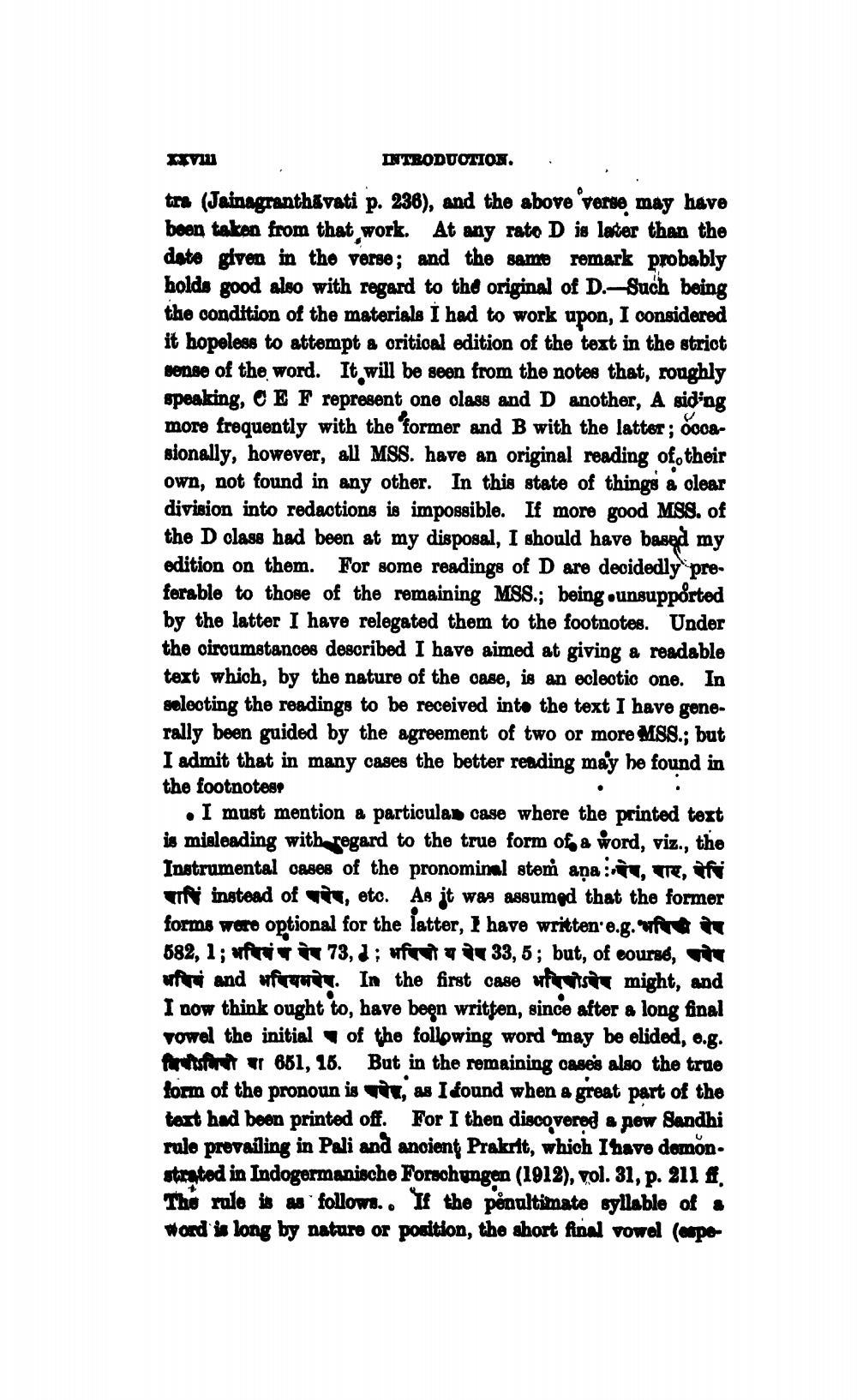________________
HIVI
INTRODUOTION. tra (Jainagranthavati p. 236), and the above verso may have been taken from that work. At any rato D is later than the date given in the verse; and the same remark probably holds good also with regard to the original of D.-Such being the condition of the materials I had to work upon, I considered it hopeless to attempt a critical edition of the text in the striot sense of the word. It will be seon from the notes that, ronghly speaking, C E F represent one class and D another, A siding more frequently with the former and B with the latter ; 0008sionally, however, all MSS. have an original reading of their own, not found in any other. In this state of things a clear division into redactions is impossible. If more good MSS. of the D class had been at my disposal, I should have based my edition on them. For some readings of D are decidedly preferable to those of the remaining MSS.; being unsupported by the latter I have relegated them to the footnotes. Under the circumstances described I have aimed at giving a readable text which, by the nature of the case, is an eclectic one. In selooting the readings to be received into the text I have genorally been guided by the agreement of two or more M88.; but I admit that in many cases the better reading may he found in the footnotes
. I must mention a particulas case where the printed text is misleading with regard to the true form of a word, viz., the Instrumental cases of the pronominal sten ana:, me, foi
if instead of ac, etc. As it was assumed that the former forms were optional for the latter, I have written'e.g.wird 682, 1; wir 73,d ; ufro 33, 5; but, of course, o अपि and भविषमरेष. In the first case भरिपोऽष might, and I now think ought to have been written, since after a long final vowel the initial of the following word may be elided, o.g. foresford 661, 16. But in the remaining cases also the true form of the pronoun is it, as I found when a great part of the taxt had been printed off. For I then discovered a pow Sandhi rulo prevailing in Pali and ancient Prakrit, which I have domon. strated in Indogermanische Forschungen (1912), vol. 31, p. 211 ff. Tho rule is as follows.. If the penultimate syllable of a word is long by nature or position, the short final vowel (espo




